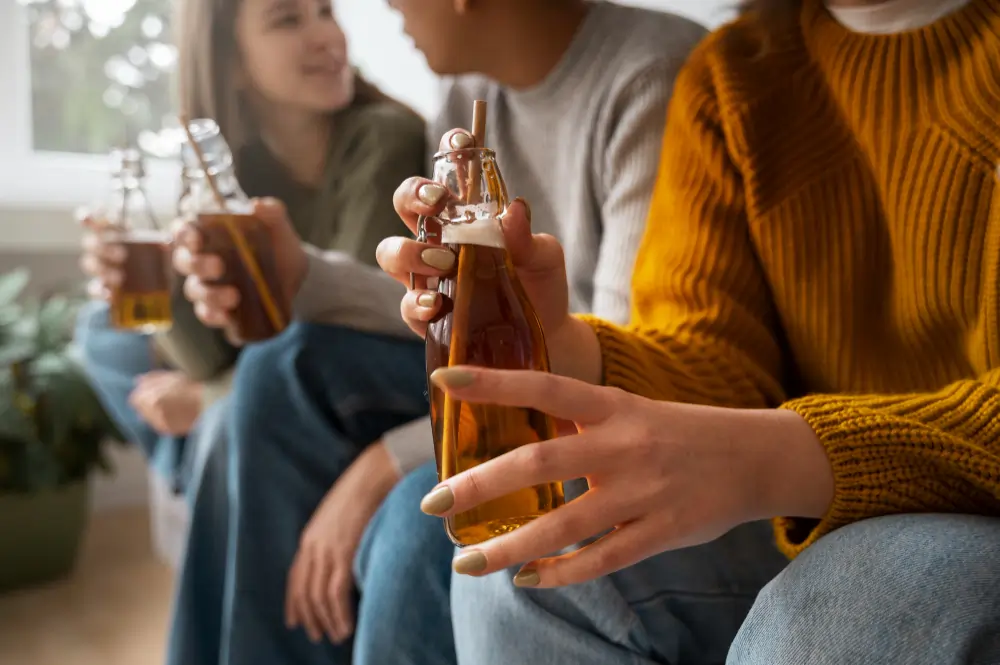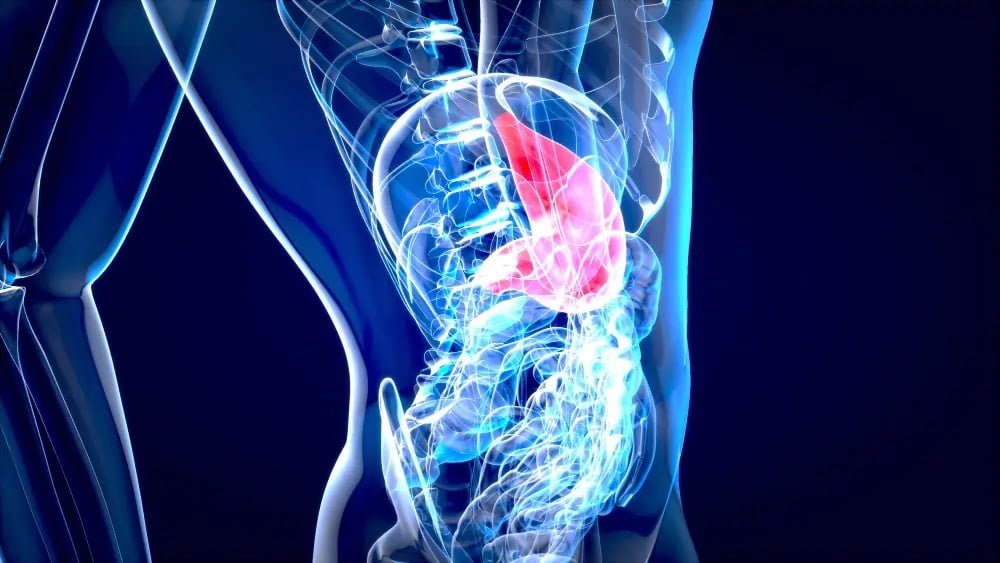
Alcohol consumption has become deeply ingrained in our cultures, social activities, and celebrations. But for individuals with diabetes, an important question arises: Is alcohol a risky mix when it comes to managing their condition? In this article, we will explore the potential risks and consequences of consuming alcohol for people living with diabetes, shedding light on how it affects blood sugar levels, increases the risk of complications, and offers guidance on responsible alcohol consumption while managing diabetes.
Introduction
A. Hook: The popularity of alcohol consumption
Imagine yourself at a lively gathering, surrounded by friends and family, enjoying each other’s company. Chances are, a glass of wine, a cocktail, or a beer might be in your hand, adding a touch of conviviality and relaxation to the atmosphere. The consumption of alcohol has become a common social ritual for many, but for individuals with diabetes, this raises concerns about the impact it may have on their health.
B. Thesis statement: The potential risks of consuming alcohol for individuals with diabetes
When it comes to diabetes management, maintaining steady blood sugar levels is crucial. Alcohol, however, can complicate this delicate balance. In the following sections, we will delve into the effects of alcohol on blood sugar levels, the association between alcohol and diabetes complications, strategies for managing alcohol consumption, and alternative options for those seeking to avoid alcohol altogether.
Understanding diabetes
A. Definition and types of diabetes
Diabetes is a chronic condition characterized by high blood sugar levels. There are two main types of diabetes: type 1 and type 2. Type 1 diabetes occurs when the body does not produce enough insulin, while type 2 diabetes is a result of insulin resistance. Both types require careful monitoring and management to avoid potential health complications.
B. The impact of diabetes on daily life
Living with diabetes requires individuals to make conscious choices about their diets, physical activity, medication, and overall lifestyle. Maintaining stable blood sugar levels is essential to prevent short-term complications such as hypoglycemia or long-term complications like cardiovascular disease and nerve damage.
Effects of alcohol on blood sugar levels
A. How alcohol affects blood sugar
Alcohol can affect blood sugar levels due to its impact on the liver, which plays a crucial role in regulating glucose. When alcohol is consumed, the liver prioritizes its metabolism, causing a delay in glucose production. As a result, blood sugar levels can drop, leading to hypoglycemia, or low blood sugar.
B. Hypoglycemia risk and alcohol consumption
For individuals with diabetes who take insulin or certain oral medications, the risk of experiencing hypoglycemia increases with alcohol consumption. Since alcohol can mask the symptoms of low blood sugar, it becomes more challenging to recognize and treat these episodes promptly. This heightened risk highlights the need for caution and moderation when drinking alcohol.
Alcohol and diabetes complications
A. Increased risk of hypoglycemia
Beyond the immediate danger of hypoglycemia, alcohol also increases the risk of prolonged or severe low blood sugar levels, which could lead to serious complications such as seizures or loss of consciousness. This risk is particularly significant for individuals with type 1 diabetes who inject insulin.
B. Altered judgment and decision-making
Alcohol impairs cognitive function and decision-making abilities. This can lead to poor self-care and management practices for individuals with diabetes. Correctly estimating carbohydrate counts, administering the appropriate insulin dose, or recognizing symptoms of hypo- or hyperglycemia can become more challenging under the influence of alcohol.
C. Liver health and diabetes
Alcohol and diabetes can both have adverse effects on liver health. Excessive alcohol consumption can damage the liver, leading to conditions such as fatty liver disease, alcoholic hepatitis, or cirrhosis. When combined with diabetes, the risk of liver-related complications intensifies, emphasizing the need for caution and moderation.
Managing alcohol consumption with diabetes
A. Know your limits
Understanding your body’s response to alcohol is crucial for individuals with diabetes. Testing blood sugar levels before, during, and after alcohol consumption can provide insights into how alcohol affects you personally. This knowledge enables you to establish realistic limits and make informed choices.
B. Monitoring blood sugar levels
Regularly monitoring blood sugar levels is essential when alcohol is in the equation. This practice allows you to detect any fluctuations, address hypoglycemia promptly, and adjust your management strategies if needed. Maintaining communication with healthcare providers regarding your alcohol consumption can also prove beneficial.
C. Smart alcohol choices
Not all alcoholic beverages are created equal when it comes to their impact on blood sugar levels. Opting for lighter or sugar-free drink options can help reduce the risk of sudden spikes or drops in blood sugar. Mixing alcohol with non-caloric, sugar-free mixers can be a wiser choice for individuals with diabetes.
Alcohol and medication interactions
A. Potential effects on diabetes medications
Certain diabetes medications can interact negatively with alcohol. Some medications lower blood sugar levels, and combining them with alcohol may compound the risk of hypoglycemia. Understanding these potential interactions and consulting with healthcare providers about your medication regimen is crucial for safe diabetes management.
B. Consultation with healthcare providers
Healthcare providers play an important role in helping individuals with diabetes make informed decisions about their alcohol consumption. They can provide personalized guidance, consider individual needs and concerns, adjust medications if necessary, and help individuals navigate potential risks and complications associated with diabetes and alcohol.
Moderation and responsible drinking

A. Defining moderation
Moderation is the key to maintaining a healthy relationship with alcohol while managing diabetes. For men, moderate alcohol consumption generally means consuming up to two standard drinks per day, while for women, it is up to one standard drink per day. In the context of diabetes, moderation takes on even greater significance.
B. Tips for responsible alcohol consumption
Responsible alcohol consumption involves understanding and mitigating potential risks. Some helpful tips include drinking alcohol with food, pacing yourself instead of indulging in rapid drinking, drinking water alongside alcoholic beverages, and being mindful of the overall carbohydrate content of your meals and drinks.
Alcohol-free alternatives
A. Exploring non-alcoholic beverages
For individuals with diabetes who wish to avoid alcohol altogether, there is a growing variety of non-alcoholic options available in the market. These beverages offer a chance to enjoy social gatherings without alcohol-related concerns while still providing a pleasurable sensory experience.
B. Mocktail recipes for people with diabetes
Why not explore the world of mocktails? These alcohol-free drinks can mimic the flavors and enjoyment of traditional cocktails while avoiding the potential complications associated with alcohol consumption. Experimenting with mocktail recipes at home can be an exciting and creative way to indulge in a refreshing beverage.
Seeking support and getting help
A. Support groups and communities
Living with diabetes and managing alcohol consumption can be challenging, but the sense of belonging to a supportive community can make a significant difference. Joining support groups or online communities allows individuals to share experiences, exchange tips, seek advice, and find emotional support from peers who understand their journey.
B. Professional assistance for alcohol-related concerns
If alcohol consumption becomes problematic or difficult to control, seeking professional assistance is essential. Healthcare providers, therapists, or counselors can provide guidance, resources, and treatments tailored to the individual’s needs. Taking proactive steps toward managing alcohol-related concerns ensures overall well-being and diabetes management.
Conclusion
In conclusion, people with diabetes need to approach alcohol consumption with caution and awareness. While moderate drinking may be possible for some, others may find it more prudent to abstain completely to avoid potential complications. Understanding the effects of alcohol on blood sugar levels, and the associated risks, and implementing strategies for responsible alcohol consumption can help individuals with diabetes navigate their choices effectively. By prioritizing health, seeking support, and making informed decisions, it is possible to strike a balance that allows for enjoyment while managing diabetes with care.
FAQs
Q: Can I consume alcohol if I have diabetes?
A: Alcohol consumption is possible for people with diabetes, but it requires careful management and moderation. Consult your healthcare provider for personalized guidance.
Q: How does alcohol affect blood sugar levels?
A: Alcohol can lower blood sugar levels, leading to hypoglycemia, or low blood sugar. Understanding your body’s response to alcohol is vital for safe consumption.
Q: Are some alcoholic beverages safer for people with diabetes than others?
A: Yes, certain alcoholic beverages are better choices for individuals with diabetes. Opt for lighter options and sugar-free mixers to reduce the risk of blood sugar fluctuations.
Q: Can alcohol interact with diabetes medications?
A: Yes, alcohol can interact with some diabetes medications, potentially increasing the risk of hypoglycemia. Consult your healthcare provider regarding your specific medications.
Q: What can I drink instead of alcohol if I want to avoid it?
A: There are numerous non-alcoholic options available, ranging from non-alcoholic beers and wines to creative mocktail recipes. Explore these alternatives to enjoy social gatherings while managing your health effectively.



 Afrikaans
Afrikaans Albanian
Albanian Amharic
Amharic Arabic
Arabic Armenian
Armenian Azerbaijani
Azerbaijani Basque
Basque Belarusian
Belarusian Bengali
Bengali Bosnian
Bosnian Bulgarian
Bulgarian Catalan
Catalan Cebuano
Cebuano Chichewa
Chichewa Chinese (Simplified)
Chinese (Simplified) Chinese (Traditional)
Chinese (Traditional) Corsican
Corsican Croatian
Croatian Czech
Czech Danish
Danish Dutch
Dutch English
English Esperanto
Esperanto Estonian
Estonian Filipino
Filipino Finnish
Finnish French
French Frisian
Frisian Galician
Galician Georgian
Georgian German
German Greek
Greek Gujarati
Gujarati Haitian Creole
Haitian Creole Hausa
Hausa Hawaiian
Hawaiian Hebrew
Hebrew Hindi
Hindi Hmong
Hmong Hungarian
Hungarian Icelandic
Icelandic Igbo
Igbo Indonesian
Indonesian Irish
Irish Italian
Italian Japanese
Japanese Javanese
Javanese Kannada
Kannada Kazakh
Kazakh Khmer
Khmer Korean
Korean Kurdish (Kurmanji)
Kurdish (Kurmanji) Kyrgyz
Kyrgyz Lao
Lao Latin
Latin Latvian
Latvian Lithuanian
Lithuanian Luxembourgish
Luxembourgish Macedonian
Macedonian Malagasy
Malagasy Malay
Malay Malayalam
Malayalam Maltese
Maltese Maori
Maori Marathi
Marathi Mongolian
Mongolian Myanmar (Burmese)
Myanmar (Burmese) Nepali
Nepali Norwegian
Norwegian Pashto
Pashto Persian
Persian Polish
Polish Portuguese
Portuguese Punjabi
Punjabi Romanian
Romanian Russian
Russian Samoan
Samoan Scottish Gaelic
Scottish Gaelic Serbian
Serbian Sesotho
Sesotho Shona
Shona Sindhi
Sindhi Sinhala
Sinhala Slovak
Slovak Slovenian
Slovenian Somali
Somali Spanish
Spanish Sundanese
Sundanese Swahili
Swahili Swedish
Swedish Tajik
Tajik Tamil
Tamil Telugu
Telugu Thai
Thai Turkish
Turkish Ukrainian
Ukrainian Urdu
Urdu Uzbek
Uzbek Vietnamese
Vietnamese Welsh
Welsh Xhosa
Xhosa Yiddish
Yiddish Yoruba
Yoruba Zulu
Zulu